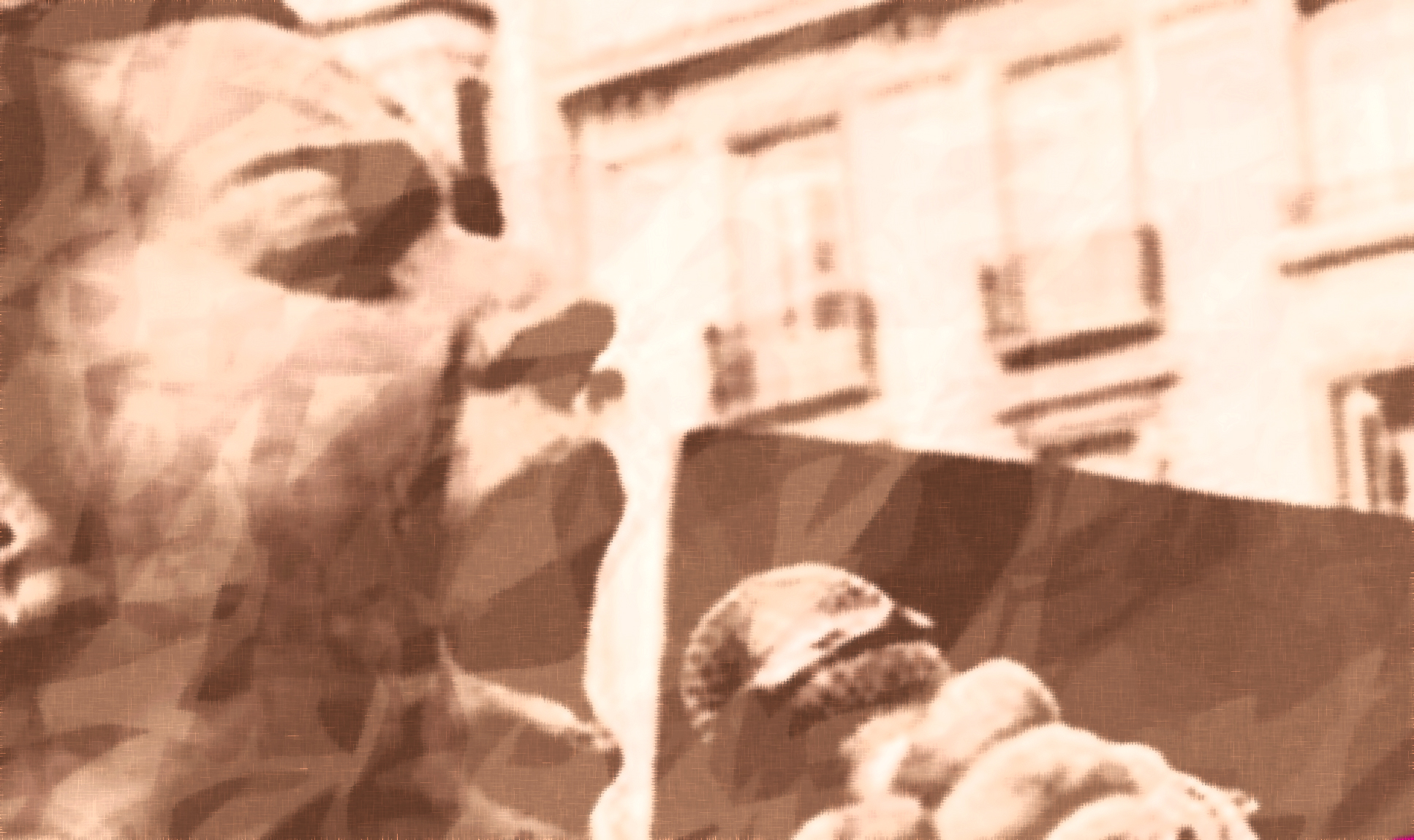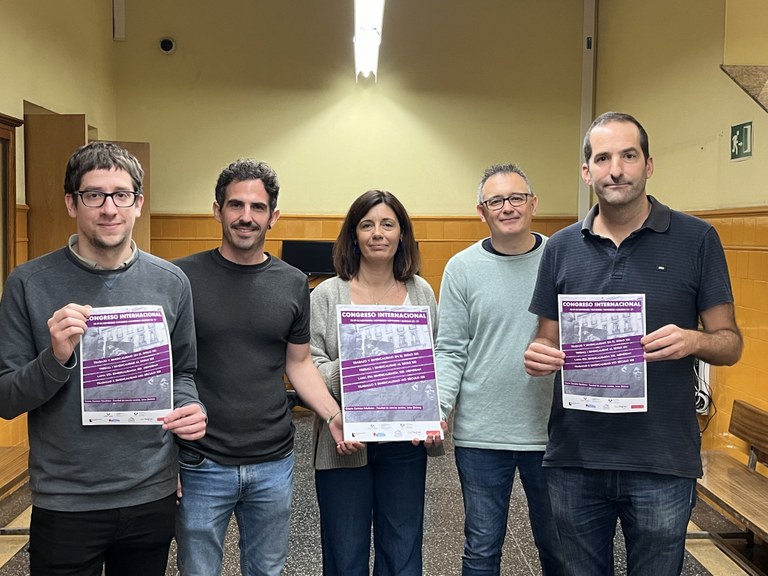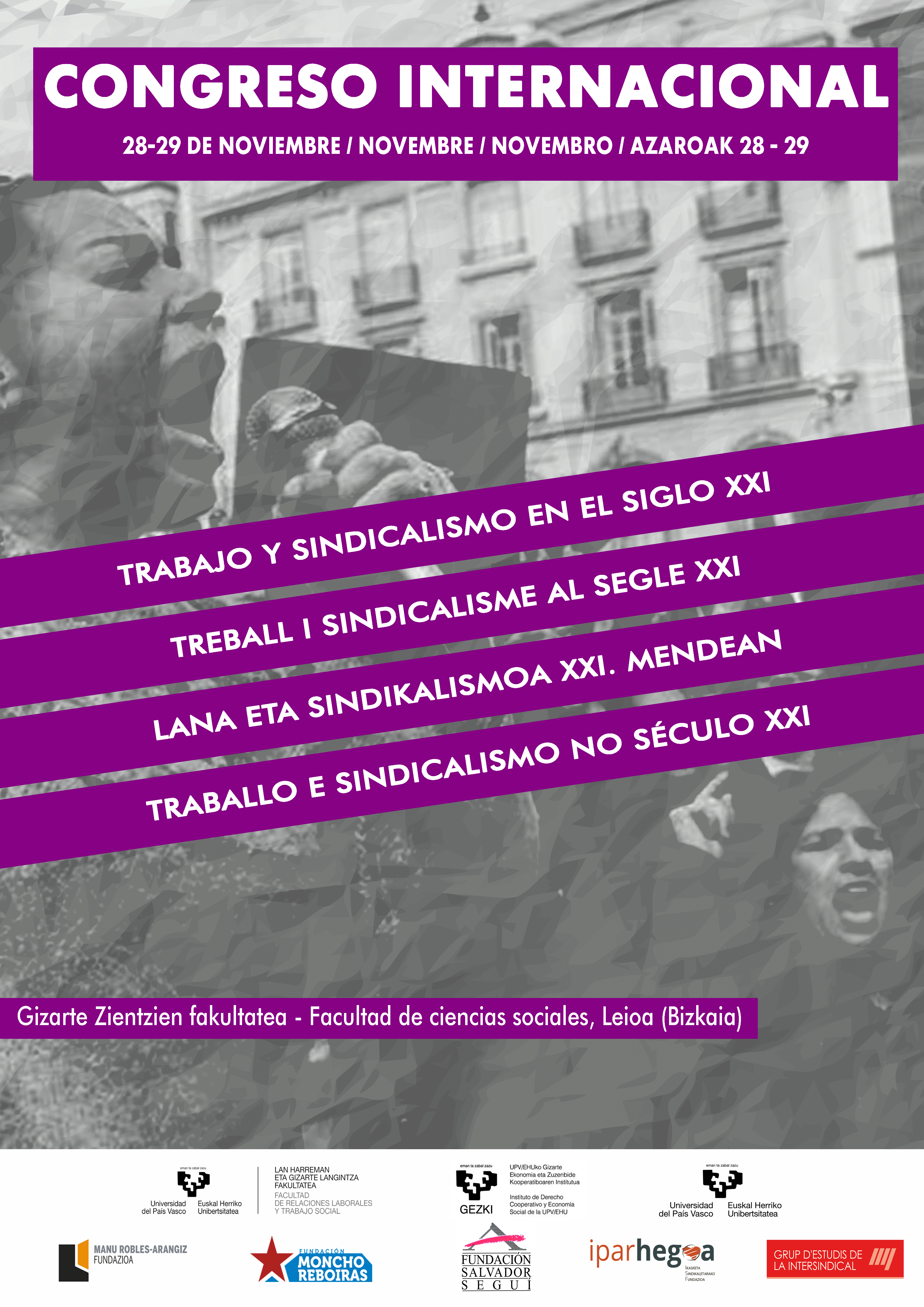
- More than 40 rapporteurs will participate this Thursday and Friday in the Leioa Campus of the UPV/EHU at the First International Labour and Trade Union Congress of the 21st Century. The guest will talk about the challenges and strategies of the world of work and the transformative syndicalism posed to the Basque Country.

Dozens of talks, round tables and debates will take place this Thursday and Friday in Leioa, at the Faculty of Labor Relations and Social Work of the UPV/EHU, with the assistance of experts and activists, at the First International Congress of Labor and Trade Unionism of the 21st century.
Given the range of organizers, it is already apparent that it can mark a milestone in trade union and industrial relations: Faculty of Labor Relations and Social Work of the UPV/EHU; GEZKI, Institute of Social Economy and Cooperative Law; Manu Robles-Arangiz Foundation (ELA Syndicate); South North Foundation (LAB Syndicate); Fundación Moncho Reboiras (CGT Catalan Federation); In addition, the congress was supported by the Government of Quebec, which denied any pronouncement.

The problems of precarious workers under discussion
"Capitalist organized work is permeated by many tensions and contradictions, and workers have to seek creative responses, both individual and collective," says the presentation text of the congress. But although it is essential to set up organisational instruments to meet this challenge, the text considers the lack of attention given to trade unionism, which in many cases manifests itself as an "anecdote", to be "worrying".
Although it is essential to articulate organizational tools to face the challenges of the workers, the presentation text of the congress points out that the scant attention that syndicalism receives is, on many occasions, "anecdotal"
Thus, on many occasions, the studies related to the world of work – and the policies set out below – do not capture the problems of workers, "especially of the most precarious and less organized sectors", that is, of the feminized and rationalized sectors.
These situations, in addition to the strategies of domination of the patriarchy, show many other problems and challenges: atomization of work, opposing positions towards the ecological transition of the industry, capacity and training for the internal transformation of the unions, labor conflicts and strikes, the need to focus on negotiation...
40 communications
That and much more will be talked about in two days. The Congress will have four main rapporteurs and four highly experienced: Pastori Filigrana, Yayo Herrero, Martí López Andreu and Miguel Martínez Lucio.
The Congress will have four main rapporteurs and four highly experienced: Pastori Filigrana, Yayo Herrero, Martí López Andreu and Miguel Martínez Lucio
In addition, a round table has been organised with the organizing unions, in which 40 communications have been presented to discuss different topics and sectors: anti-racism, feminism, care, transformation of economic models, growth...
In addition to the entrepreneurs of the trade unions, the congress will involve university experts and other actors: The Madrid tenants union, the Ipar Euskal Herriko Alda association, the journalist Gessamí Forner de El Salto, CNT and the Aragonese trade unions Osta and the transforming economy expert of the cooperative Talaios Oscar García have also presented two communications.
Following the opening lectures of the Congress of Yayo Herrero and Pastora Filigrana, Thursday will give way to the debates. The other two papers will be heard on Friday and more discussion tables will be opened, and a closing event will be held at 12 noon.
Full program here.
